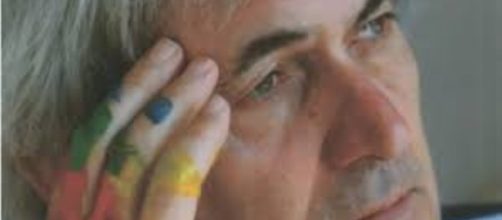Protests seem to be a way of life these days and usually with good reason. So many wrongs call out to us to raise our fists to issues such as racism, anti-Semitism, sexism, Trumpism. But news of an ethics problem, made anonymously by an art student at the University of Central Florida, hardly rises to the level of OMG. The complaint was lodged against a longtime professor of advanced painting, Walter Gaudnek, who is given to using expletives to make a point. And in this case, when he assessed this student’s work, he’s ben quoted saying, “You can’t paint the [expletive] Virgin Mary like this, she would be so [expletive] pissed.
You should just paint a vagina on it; it would be so much better.”
Vulgarity watch
Gaudnek, who is noted on the school website as a frequently honored art teacher, argued that academic freedom allows him to speak as he chooses and that he often uses profanity when talking about particular art movements like Pop art, Dadaism, and Futurism. The school didn’t buy it. Interim director Rudy McDaniel said in a letter to the professor that academic freedom doesn’t include “offensive language when evaluating a student’s work.” From now on, Gaudnek is required to post a warning on his syllabus about his habit of using strong language. The story as it appeared in the news this weekends here, but it raises questions.
The first one goes to the student, who opted to remain nameless. If the issue is ethics, shouldn’t the one pointing a finger own up?
Down with critics
As for the complaint that the teacher’s critique was offensive, it can be argued that all criticism is. No one likes it, particularly anyone who paint or perform. Unlike the rest of the population, artists’ inwardness lies in their work – on canvas, on state – and when dressed down, they feel stripped of themselves.
There are numerous examples of the balking artist, even from those who have enjoyed great success. Jim Dine, known for headlining the first Pop Art show in the U.S., has been so uncomfortable with critics that he acknowledged murderous thoughts: “If this were another time, I’d be packing a piece.” And Paul Gauguin didn’t even think that a critic had any business commenting on his work, calling such a person “someone who meddles with something that is none of his business.”
Good advice
Then there’s Damien Hirst of shark-in-formaldehyde fame accusing critics of writing things “that sound like they've swallowed an f...
dictionary” (as if his “art” makes sense). And Georgia O’Keeffe complained about critics who write about her flowers as if she thought of them the way they do (as female genitalia). But maybe it’s Leonardo Da Vinci thinking about criticism that artists, particularly that UCF student, should be the final word here. He said that the views of critics should be considered and if correctly taken to heart. And if the censure isn’t fair, ignore it unless it comes from someone you respect. In that case, explain why the judgment is wrong. Sounds good?

